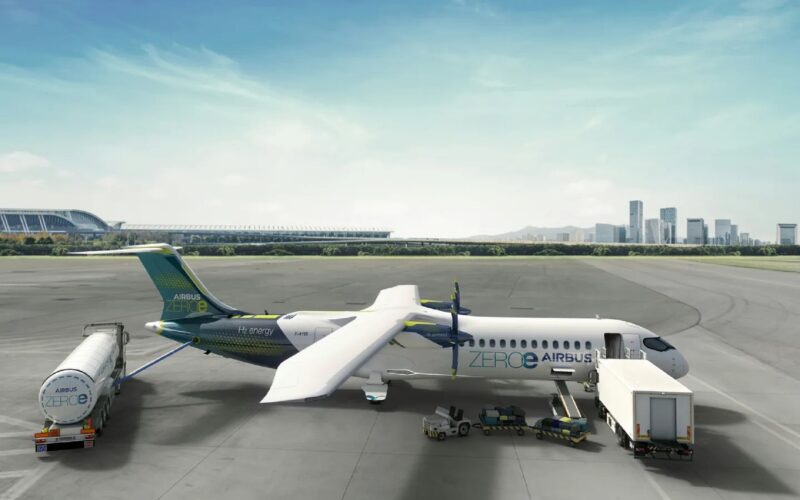A group of aviation heavyweights that came together in September 2023 to form the Hydrogen in Aviation alliance (HIA) have set out the UK’s strategy to lead the global hydrogen industry and build a $43 billion income.
On March 18, 2023, Airbus, easyJet, Rolls-Royce, Ørsted, GKN Aerospace, Bristol Airport and ZeroAvia published the Milestone Delivery Report that sets out how to ensure the UK has the “right conditions for the technological development, regulation, infrastructure, financial framework and hydrogen supply that will be needed for hydrogen aviation”.
According to a statement accompanying the report the alliance said that the UK is home to many world-first advances in hydrogen-powered aircraft technology from hydrogen engine testing to the first flights of hydrogen-fueled planes so is well placed to become a global leader in the technology.
“This would secure substantial economic, employment and sustainability benefits. To realize these benefits, we need an industrial strategy for the sector focused on these long-term opportunities,” HIA said in its statement.
“The opportunity will be gone if we do not act now”
Johan Lundgren, CEO of easyJet and first Chair of HIA, said that if the UK does not act now and build on all the “great work that has already been done” then the opportunity could be lost forever.
“The breakthroughs in hydrogen-powered technology happening across the UK are truly astonishing but these advances will be inconsequential if we fail to complement them with the appropriate skills, infrastructure, investment and regulation needed to support hydrogen aviation,” Lundgren said.
He added: “HIA’s Milestone Delivery Report outlines the critical steps and the timeframe needed to do this and if followed, not only will it create significant wealth, jobs and prosperity across industry and across the UK, it will be a vital component in decarbonizing the aviation sector.”
The six key recommendations outlined by HIA in the report
HIA recommends that measures are taken to support the transition from research to development, and ultimately industrialization, of world leading propulsion and flight technologies in the UK.
HIA recommends that the UK’s Civil Aviation Authority (CAA) is appropriately resourced and funded with the capacity to lead on certification, standard-setting, and new regulation – working in co-ordination with other relevant bodies and the academic community to support a hydrogen-ready future.
HIA recommends building a well-developed network of hydrogen-ready airports both in the UK and overseas.
HIA recommends the government provide the necessary support and incentives needed to get the sector over the hurdle of transition costs and investment in new infrastructure.
HIA recommends scaling up both hydrogen production capacity as well as renewable power, carbon capture and low carbon hydrogen generation to ensure the UK can secure sufficient hydrogen for all sectors that need to decarbonize, including aviation.
HIA recommends government and industry work together to equip the UK’s workforce with the appropriate skills and ensure industry-readiness to support the transition to this new technology.
$43 billion a year industry
“Technology is already unlocking the potential of hydrogen as a new fuel and Airbus is firmly focused on getting a hydrogen powered aircraft in the air by 2035. Beyond the aircraft, we have to prepare people, policy and infrastructure to build a world-leading hydrogen aviation economy in the UK. This report gives us the blueprint for making it happen, so now is the time to follow through,” Mark Bentall, Head of Research & Technology at Airbus, said.
According to HIA, the aviation industry in the UK brings in £22 billion ($27.8 billion) directly to gross domestic product (GDP), plus £34 billion ($43 billion) from exporting aerospace components and it also directly employs over 230,000 people.
As well as preserving an industry that is a key part of our economy, HIA maintains hydrogen could generate an additional £34 billion ($43 billion) for the UK every year.
“This report is a real testament to cross-industry efforts to set a practical pathway to adopting hydrogen as the fuel of the future for aviation. Hydrogen-powered aircraft will be flying commercially in the UK within the next few years, meaning that there will be a clear roadmap needed to scale the fuel supply as it grows into larger aircraft segments. Hydrogen in Aviation is a powerful coalition for driving this change in partnership with the Government,” Sergey Kiselev, Chief Business Officer, ZeroAvia said.

